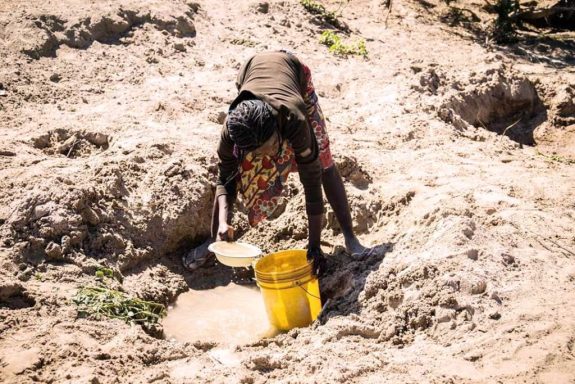Over six million people face hunger, malnutrition and water scarcity in Zambia, Oxfam warns

Oxfam warns that over six million people from farming families in Zambia are facing acute food shortages and malnutrition until next growing season, which is twelve months away, due to a severe drought, exacerbated by climate change and El Nino, which has caused massive crop failures for half of the nation’s “planted area.”
The drought has forced the Zambian government to declare a national disaster and emergency. President Hakainde Hichilema said last week Thursday that the country had gone without rain for five weeks at a time when farmers needed it the most. The drought had hit 84 of the country’s 116 districts, affecting more than a million farming households.
Ezra Banda, Director at Keepers Zambia Foundation, a partner organisation that works with Oxfam, says this crisis is coming at the time when the country is still recovering from the worst cholera outbreak that has claimed more than 700 lives, on top of another dry spell and last year’s flooding.
“Urgent support in form of food and clean water is what people need the most now,” said Banda. “Many have no food left because they did not harvest enough last year, and this El Nino-induced weather phenomenon has killed the slightest hope they had to feed themselves”.
He added that water shortages that are likely to ensue because of low rainfall this year could spark yet another cholera outbreak.
Mainza Muchindu, a smallholder farmer from Lusaka, Zambia, told Oxfam: “I have a family of ten people and I depend on farming to support them. I support my children’s education through agriculture and my little children need food the most, for their nutrition. With this crop failure, I am really in trouble.”
Standing by his drying maize crop, he said: “I don’t know what else to do because I invested all my money into this two-hectare maize crop and as you can see there is nothing that will come from here. I don’t know where else I will get food from. I can only hope that there will be food relief from the government, otherwise we are facing a big problem.”
Oxfam in Southern Africa Programme Director, Machinda Marongwe, says it is times like when climate financing is most needed, to build up practical and accessible solutions for vulnerable smallholder farmers like Mainza. However, commitment by rich countries remains an unfulfilled one.
“As long as rich countries don’t lower their carbon emissions, we know that climate shocks will be frequent and more severe. Smallholder farmers need to be insulated from this and must be adequately supported to transform their agriculture so that they can still grow food for their families amidst this climate change reality.
“Sadly, they are not getting support to solve problems they didn’t cause, none is coming their way because rich nations are offering nothing but lip service. Countries like Zambia and many others in Southern Africa need this climate financing to help them build up the resilience of their smallholder farmers, because that is wearing out.”
Yvonne Chibiya, Oxfam in Zambia Country Representative, says Oxfam and partners are doing further assessments in the targeted districts to inform the humanitarian response. Oxfam urgently needs 6 million Euros to provide 600,000 people with cash transfers and clean water, help with winter cropping, and improving local sanitation and hygiene services to prevent a resurgence of cholera outbreak.
Like what we do at The AIMN?
You’ll like it even more knowing that your donation will help us to keep up the good fight.
Chuck in a few bucks and see just how far it goes!
Your contribution to help with the running costs of this site will be gratefully accepted.
You can donate through PayPal or credit card via the button below, or donate via bank transfer: BSB: 062500; A/c no: 10495969